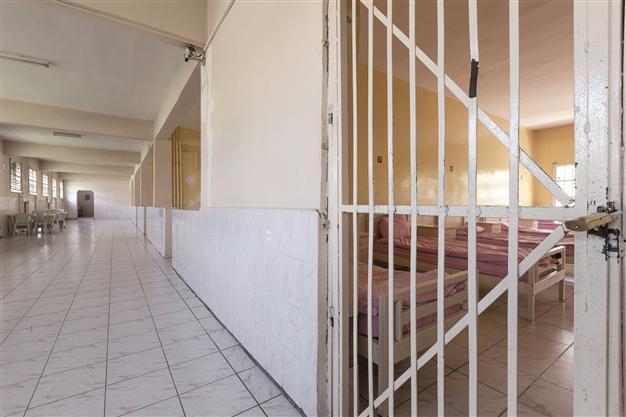Mental patients receive inhuman treatment in Turkey’s hospitals, report reveals
ISTANBUL

The report was prepared after three years of observations at six mental health disorder hospitals.
A recent NGO report has revealed the poor conditions in all of Turkey’s mental disorder hospitals, where patients are forced to bathe altogether, remain isolated for days, tied to their beds and deprived of proper rehabilitation services.The Human Rights in Mental Health Initiative (RUSİHAK) prepared the report, “Human Rights in Mental Health 2013,” over the past three years after observations at Turkey’s six mental health disorder hospitals, located in Istanbul, Manisa, Elazığ, Adana, Samsun and Ankara, where more than 3,600 patients stay in total, between September 2011 and March 2014.
The scarcity in the number of doctors and psychologists was stated as one of the major problems seen in all six hospitals in the report. The number of patients one doctor has to monitor was 7.1 at Istanbul’s Bakırköy Psychiatric Hospital, 16.6 at the Erenköy Psychiatric Hospital, 30.2 at the Manisa Psychiatric Hospital, 24.7 at the Adana Psychiatric Hospital, 31 at the Elazığ Psychiatric Hospital and 14.7 at the Samsun Psychiatric Hospital. No psychologist works at the Erenköy Psychiatric Hospital, according to the report released on RUSİHAK’s website yesterday. At the Bakırköy hospital, one psychologist sees 34 patients while this number is 49 at the Manisa hospital.
The patients are exposed to abuse by nurses while the cleaners also beat them, the report said. The patients call the cleaners as corporals in some hospitals and most of the patients told RUHİSAK officials that they were exposed to violence by such “corporals,” the report said.
Following any resistance against hospital officials, the patients are tied to their beds and in almost all of the hospitals, such patients remain tied to their beds for almost a day without being released for toilet breaks, said the report.
The report also revealed that all hospitals lacked any rehab or therapy services for patients. “The patients are given drugs and left with no choice but to stay indoors all day, mostly watching TV or wandering around the corridors of the hospital. Therapy and rehabilitation methods are almost not used in all hospitals,” said the report.
Some patients are forced to stay in isolation with no contact with outsiders for years, said the report, giving striking examples.
“There were two patients with psychosocial problems kept in cell-type rooms which have doors without windows. One of these patients had stayed there since 2009 while the other was there for two years. They were taken out of the isolation rooms for half-an-hour a day. One patient was in isolation for harming the eye of another patient two years ago, according to nurses,” said the report, also noting that patients younger than 18 were also placed in isolation rooms even though such treatment contravenes international law.
The report also revealed that patients are largely deprived of privacy in the hospitals. One patient in Adana said they had to wait naked in the bathroom and that 20 patients used the same towel after the bath. The patients had to have a bath at the same time, while some are infested with lice, according to the report.
The number of rooms, bathrooms and beds are insufficient as some patients sleep in beds lined up in corridors. Toilets without doors are also used in some hospitals. In Samsun and Istanbul, mental patients with judicial problems stay in damp rooms that are lit 24 hours a day.
The RUSİHAK report said it did not come across sexual abuse cases in the hospitals, but added that there were no protective measures against such cases.
Although some patients were exposed to sexual abuse before they came to the hospital, some nurses said they do not add these cases to their files so as to prevent these cases from turning into judicial cases, according to the report. One nurse in Bakırköy told reporters that some of their patients who came from the shelters had also been exposed to sexual abuse or that some of them had been the victims of incest. The nurse, however, said they did not add the abuses to the files of the patients lest the cases be brought to court.
RUSİHAK released its first report about psychiatric hospitals in Turkey in 2008. All visits to the hospitals were conducted with permission from the Family and Social Policies Ministry.
















